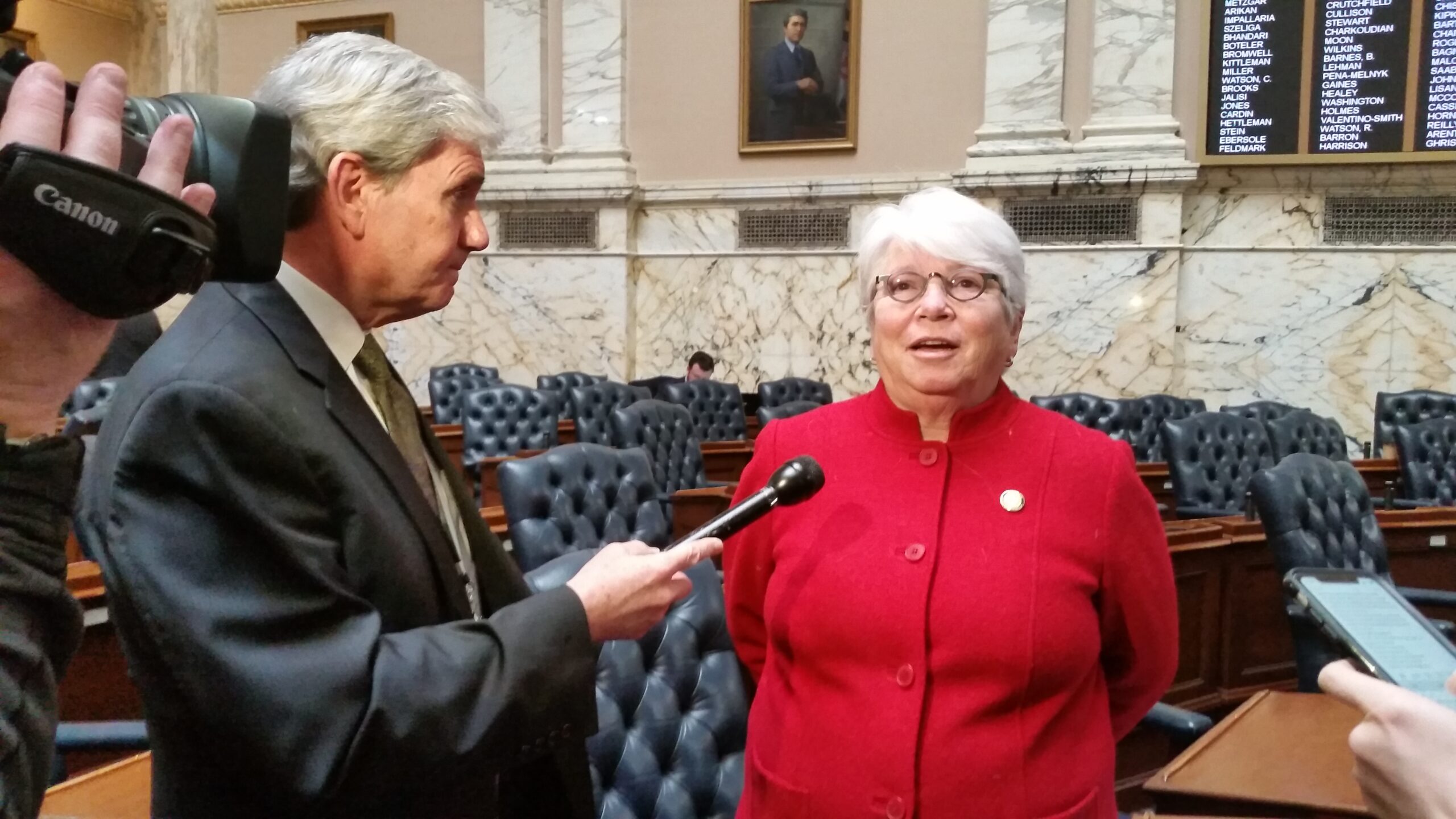Baltimore Lawmakers Say Racetrack Rescue Plan Numbers Add Up

Key Baltimore City lawmakers on General Assembly budget committees expressed optimism Monday about a proposed plan to keep the Preakness Stakes at Pimlico Race Course.
“I think this is the best agreement we’ve had,” said House Appropriations Chairwoman Maggie L. McIntosh (D-Baltimore City). “This is the first ray of hope that I’ve had.”
The proposal – negotiated by the city of Baltimore, the Maryland thoroughbred industry and The Stronach Group, which owns Pimlico, the Preakness Stakes and the Laurel Park racetrack – calls for a rehaul of the Pimlico facility as well as substantial upgrades at Laurel. Overall, the proposal would put just under $200 million into the Pimlico facility and about $173 million into a facelift at Laurel.
Pimlico would become a year-round events facility that would transform with temporary grandstands and other facilities during the Preakness Stakes. Laurel Park would become a year-round racing and training facility.
Sen. Bill Ferguson (D-Baltimore City), vice chairman of the Budget and Taxation Committee, said one benefit of the proposed plan is that it contemplates using funds that are already dedicated to improving state horse racing tracks or the neighborhood surrounding Pimlico.
Most of the $375.5 million total price tag would be covered by $348 million in bonds issued by the Maryland Stadium Authority. Those bonds could be guaranteed by casino revenues that are already dedicated to racetrack improvements – though state law would have to be changed to require casinos to pay into the Racetrack Facility Renewal Account for several years longer than an initial 16-year agreement.
Other sources of revenue include the $27.5 million cash balance in the facility renewal account, $8.5 million in capital improvement funds, $5 million from the State Racing Commission’s Purse Dedication Account, and a portion of the impact fees Baltimore receives from slot revenues, $3.5 million.
The proposal would require legislation to extend facility renewal payments to coincide with the issuance of 30-year bonds by the Stadium Authority. State law had required that any money left in the Racetrack Facility Renewal Account after a casino had been in operation for 16 years should be paid to the Education Trust Fund.
Ferguson and McIntosh said the proposal – as planned, though it could be changed in the Legislature – would not affect an ambitious school construction funding plan that lawmakers are also expected to take up next year. That $2 billion proposal could also use the Maryland Stadium Authority to issue bonds to cover the costs.
However, since the stadium authority could guarantee that debt service on the bonds would be covered by separate revenue streams – gambling for the racing improvements and casino revenues intercepted before they reach the Education Trust Fund for school construction – the authority likely wouldn’t have an issue with capacity, McIntosh and Ferguson said.
Rachelina Bonacci, a spokeswoman for the stadium authority, said there is no ceiling on the agency’s bonding capacity; rather, each project backed by the authority’s growing portfolio has a bonding ceiling set by agency leaders, she said.
Both McIntosh and Ferguson noted that the new proposal includes a focus on attracting private development to the Park Heights neighborhood and incorporating year-round activities like athletic fields into the Pimlico grounds, something that could reinvigorate the surrounding area.
Del. Samuel I. “Sandy” Rosenberg (D-Baltimore City) represents the district that includes Pimlico and said negotiators worked hard to address concerns from all corners. An earlier Stadium Authority study of redevelopment around Pimlico carried a $442 million price tag for just that facility and proved a sticking point in the General Assembly, Rosenberg said.
“We listened,” Rosenberg said in an interview with WYPR’s Tom Hall on Monday afternoon.
Under the new plan, The Stronach Group would dedicate the Pimlico land to the city of Baltimore, sign a 30-year lease for the races and take on the annual cost of installing temporary seating similar to what’s installed at PGA Masters tournaments and NASCAR races – without the continual intrusion on the neighborhood.
The plan also does more to ease tensions between backers of Pimlico and Laurel Park and could lead to a land donation of the Bowie Race Track to that city or to Bowie State University.
“It really is a win-win-win,” McIntosh said.
The plan was announced over the weekend in a letter to the leaders of the Legislature and Gov. Lawrence J. Hogan Jr. (R). Hogan has so far been silent about the plan.
“The governor has said that he would like to see the Preakness stay in Baltimore. This is a very preliminary proposal that we will review, and discuss with the legislature,” a spokeswoman, Shareese Churchill, said Monday.
While the plan is not scheduled to be on the Maryland Stadium Authority board’s agenda at its monthly meeting Tuesday, it is likely to come up during the regular presentation from the agency’s executive director, Michael J. Frenz.
The chairman of the stadium authority board is Thomas Kelso, who is also Hogan’s campaign chairman.
Joseph C. Bryce, another member of the stadium authority board, is a registered lobbyist with the Annapolis firm Manis & Caning, whose clients include the Horseshoe Casino in Baltimore. Bryce told Maryland Matters Monday he would recuse himself from any board deliberations dealing with the racetrack plan.
Josh Kurtz contributed to this report.




 Creative Commons Attribution
Creative Commons Attribution